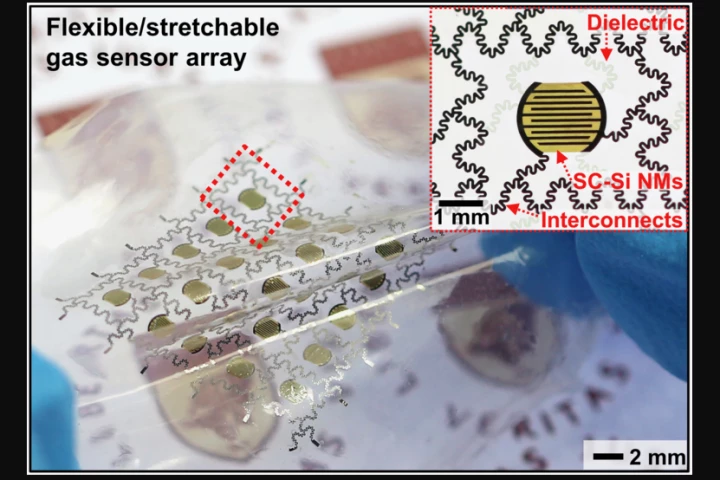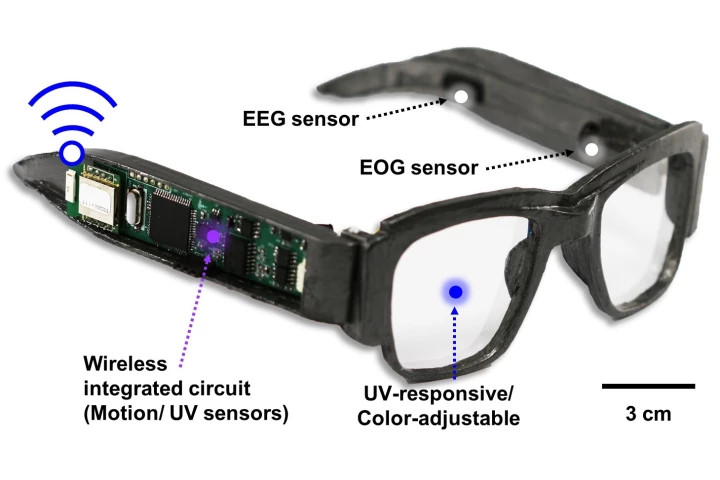Korea University
-
Cranking up the air conditioner keeps buildings cool, but it guzzles energy. Passive materials can regulate temperatures more efficiently, and now scientists have developed a new coating that keeps glass much cooler, while still being transparent.
-
While we have been hearing about the development of health-monitoring implantable sensors, most such devices would have to be surgically removed once no longer needed. An experimental new one, however, would just harmlessly dissolve.
-
We've already seen electronic glasses that watch the wearer's diet and automatically change focus, among other things. An experimental new pair monitors the user's health, lets them control games, and switch to being sunglasses as needed.
-
Scientists in Korea believe they’ve found a way around the opaque nature of conventional solar cells, with a new technique that involves punching carefully placed holes right through them to make them transparent.
-
Engineers from Georgia Tech and Korea University have developed a new supercapacitor that’s designed to store more energy for longer – and it’s made out of ordinary paper, meaning it’s flexible enough to power wearable electronics.
-
Scientists working at Korea University (KU) and Technische Universität Berlin (TU Berlin), have created a hands-free brain-computer interface to control a lower limb exoskeleton by decoding signals from the wearer’s brain.
-
Despite its many desirable qualities and potential applications, graphene still isn't as widely used as it could be for one main reason – it's difficult to apply to surfaces. Now, however, scientists have devised a method of simply spraying the stuff on.






